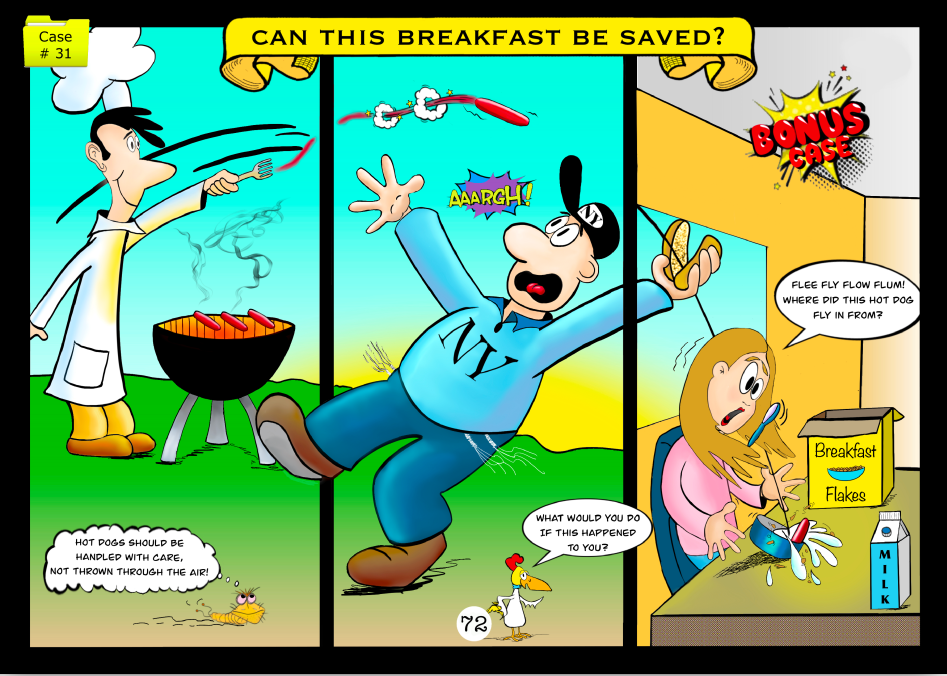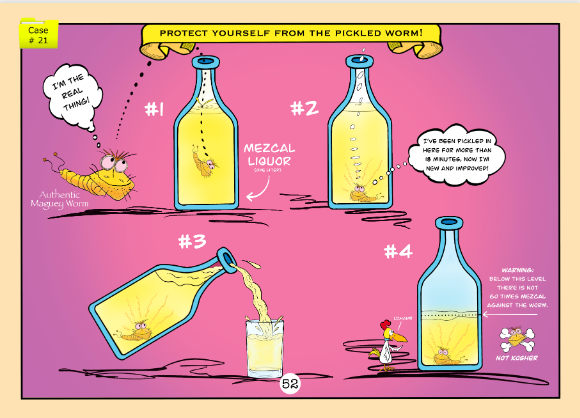“Look I found the hidden crab challenge!”
—Newman
“It’s a big chidush - insight”
—Gherman
Make your Shabbat table the place to be
Where halachot used to be yawn-inducing, or a cue for the kids to run and play, now you’ll have everyone (even your teenagers) hooked. They’ll be laughing, sharing ideas, and most of all, learning something new. Until now it was impossible to get anyone listening. Now, with an exciting Kashrut problem to solve — in an-easy-to-use format — you can make everyone happy.
Get your students interested in your lessons
Unfortunately, many students find Kashrut tedious, irrelevant and hard to remember. Enter The Great Game of Kashrut into the classroom. Suddenly, there’s a worm in a bottle of tequila. And adult students are like: “Hey, we love tequila! What now? What are the clues? Who can solve the challenge?”
Dump your false assumptions (not your soup) down the drain
False assumptions about Kashrut can make you frustrated and anxious, lead to over-stringency, and cause unnecessary friction between spouses (“What do you mean we can’t eat supper?”). This book makes Kashrut easy. Practice it in your own kitchen. Understand what’s a problem and what isn’t, and when to call a Rav (plus what to ask). Free yourself from nagging worry and doubt, and feel confident that you’re eating, and serving, kosher food.




